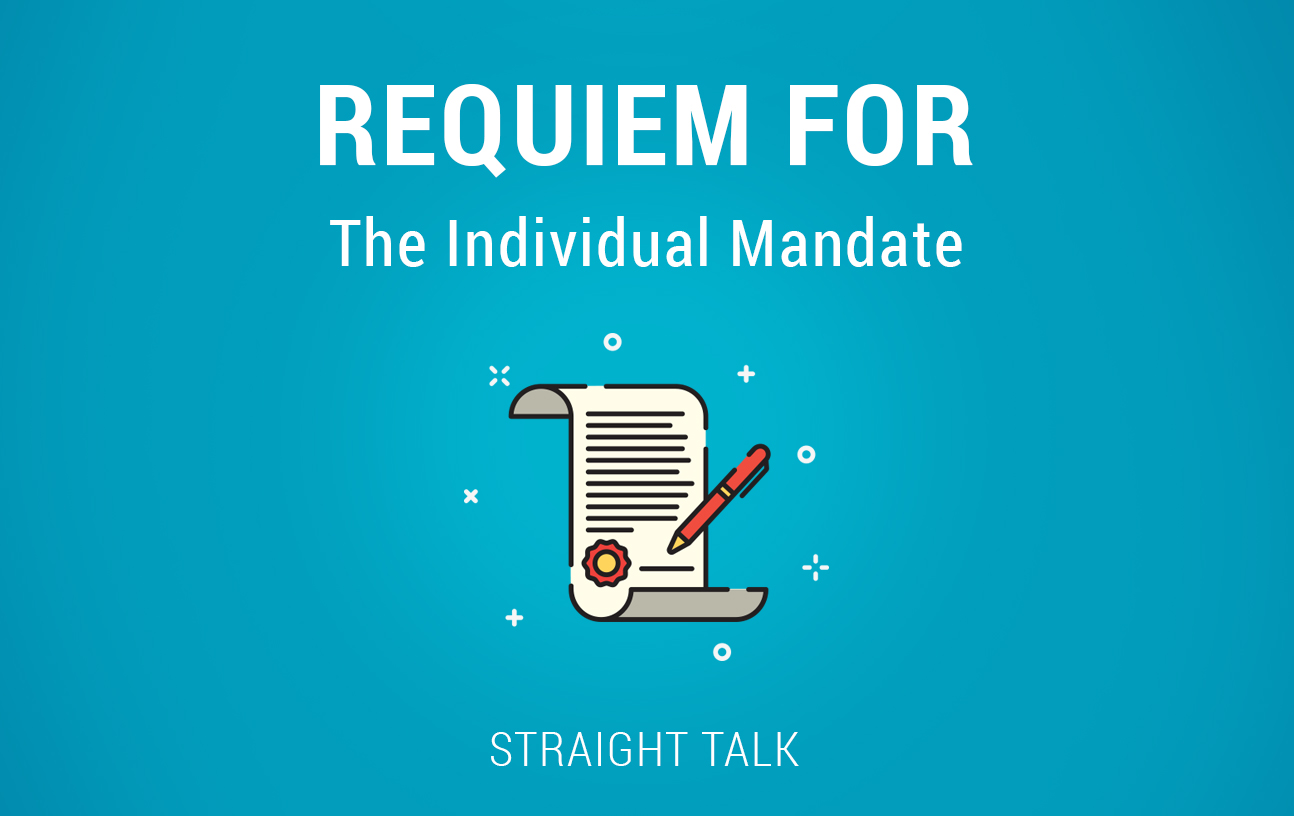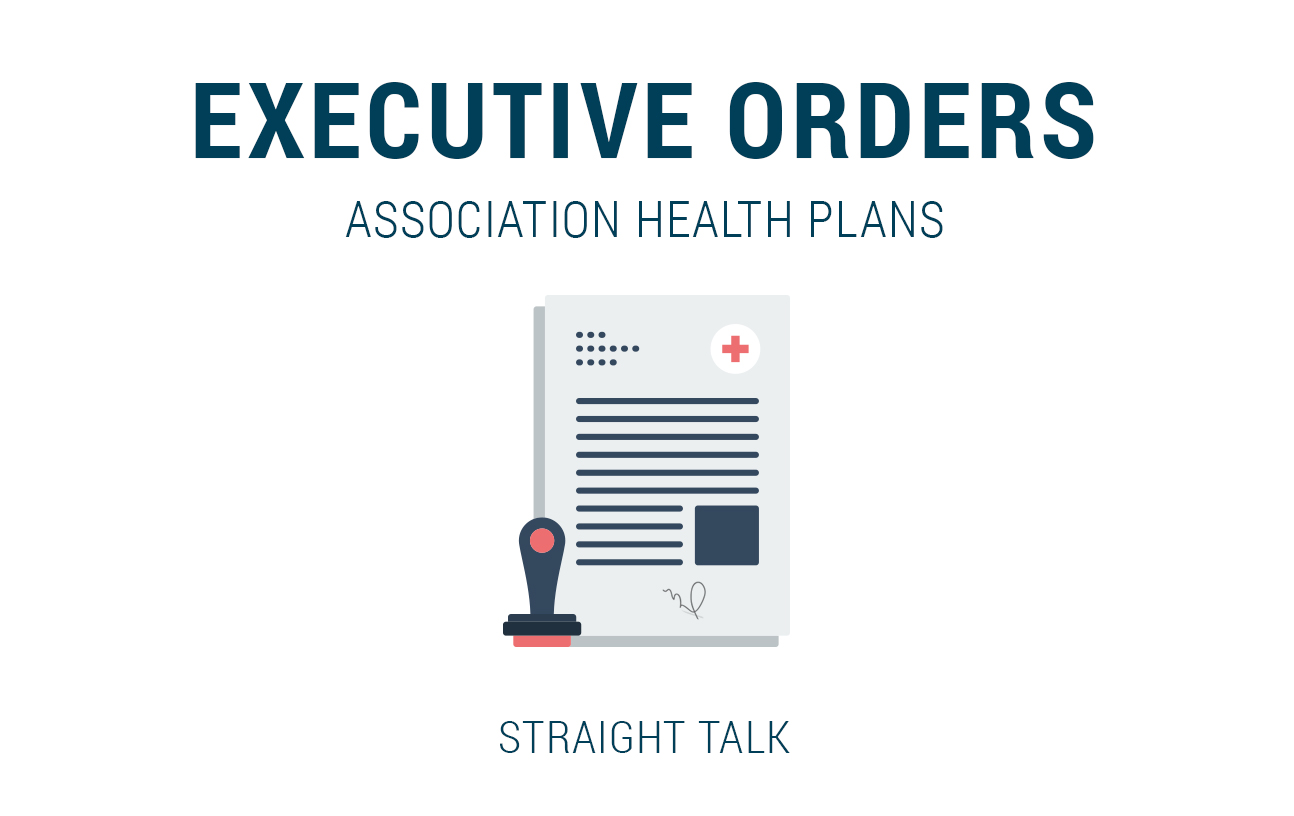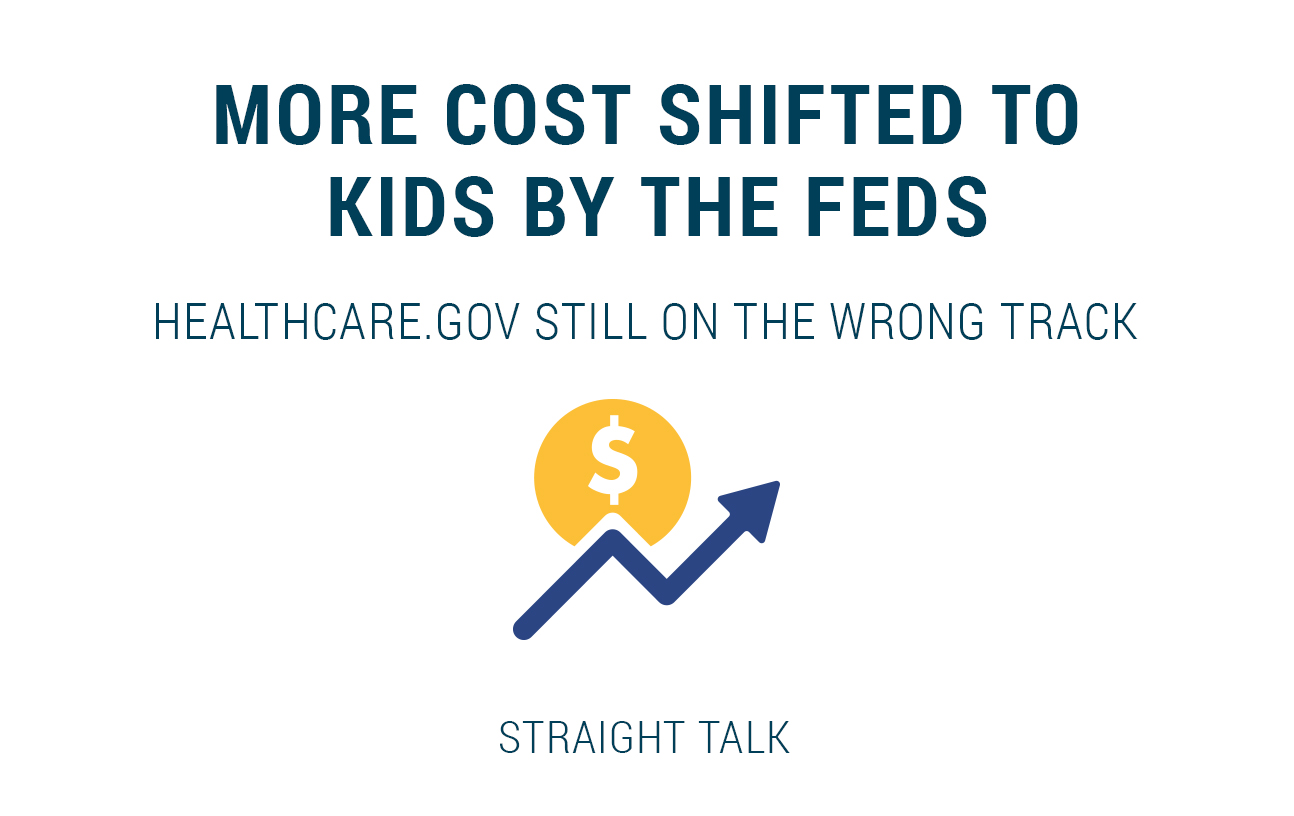

Requiem for the Individual Mandate
Requiem for the Individual Mandate
I’ve always liked the word “requiem,” which the dictionary says means “a ceremony or remembrance of someone who has passed away.”

Requiem for the Individual Mandate
I’ve always liked the word “requiem,” which the dictionary says means “a ceremony or remembrance of someone who has passed away.”

I promised you I would take you more in depth on parts of President Trump’s Executive Order on healthcare. Today we look at Association Health Plans.

Just a few days ago, we got this post on Facebook:
“I want to start by saying thank you for helping my autistic son out so much for so long. He has made significant progress at the therapy center he goes to and he now has hopes for an independent life. But…I can’t afford you anymore. Last year, my son’s insurance went up significantly. We just received the letter, like last year, saying it was going up again a significant amount again next year. I cannot fathom paying anymore in insurance, which his alone is already more than my mortgage. More than my mortgage…How is it possible for anything to actually get better for my family at this breakneck pace… My son needs help….And I’ll probably stick with you….Because you’re the only safe option for my son.”

Do You Want Your Blue Cross Plan to Have Big Market Share?
Recently, I’ve read some news articles on a study talking about how concentrated health insurance markets are in different states. The study, thoughts from important officials and data all lead to one set of conclusions for our state:

Last week, I took a well-deserved vacation. As I perched on the balcony of a nice condo on a balmy October day, enjoying an amazing view of the Gulf of Mexico and people below swimming, sunning and playing, my phone started going crazy. I mean crazy.

At its heart, health insurance is a pretty simple business. Instead of running the risk of a medical situation that outstrips your ability to pay for it (and in the healthcare world, that’s a pretty common occurrence), you transfer some or most of that risk to another entity (like Blue Cross).